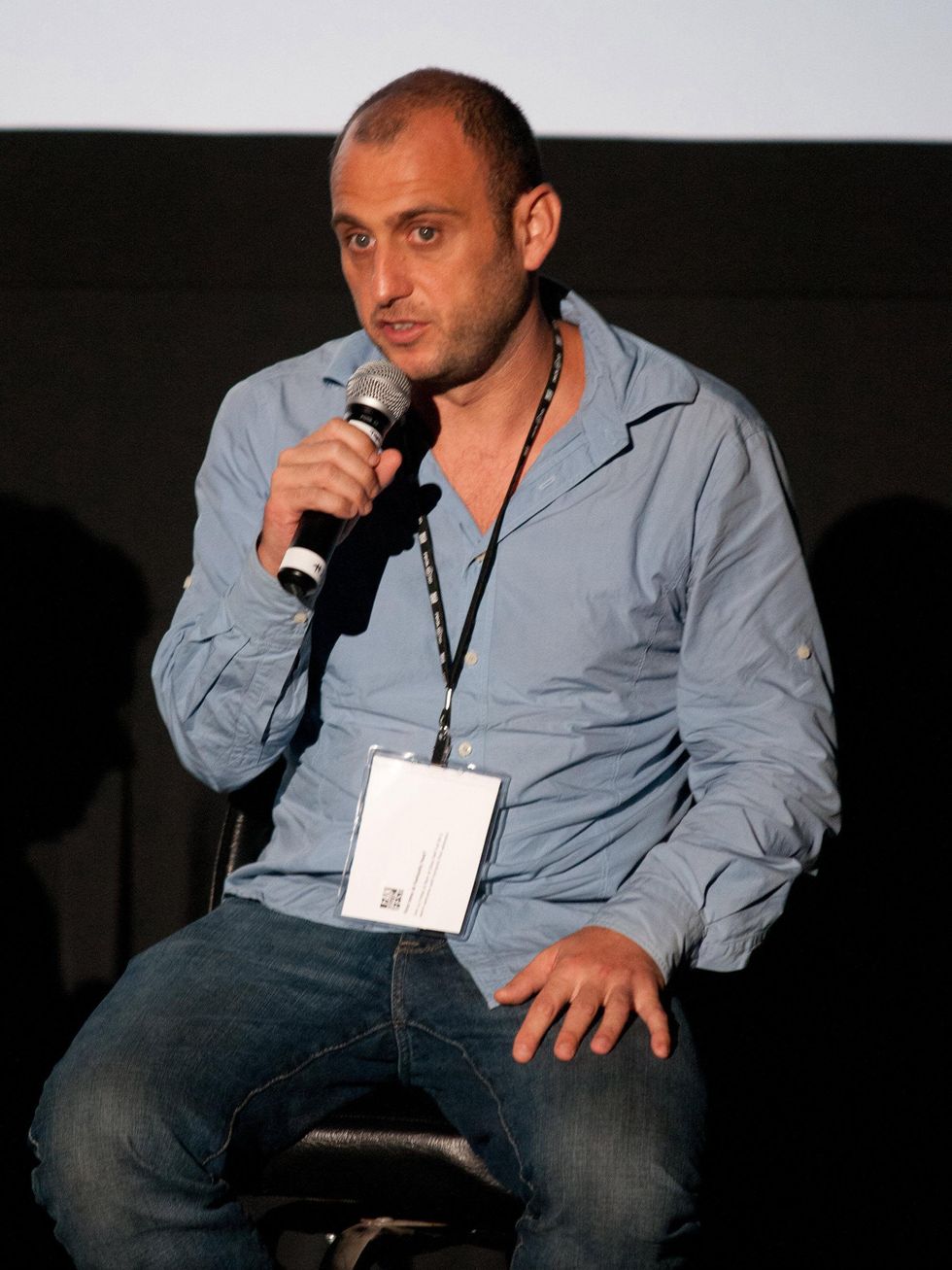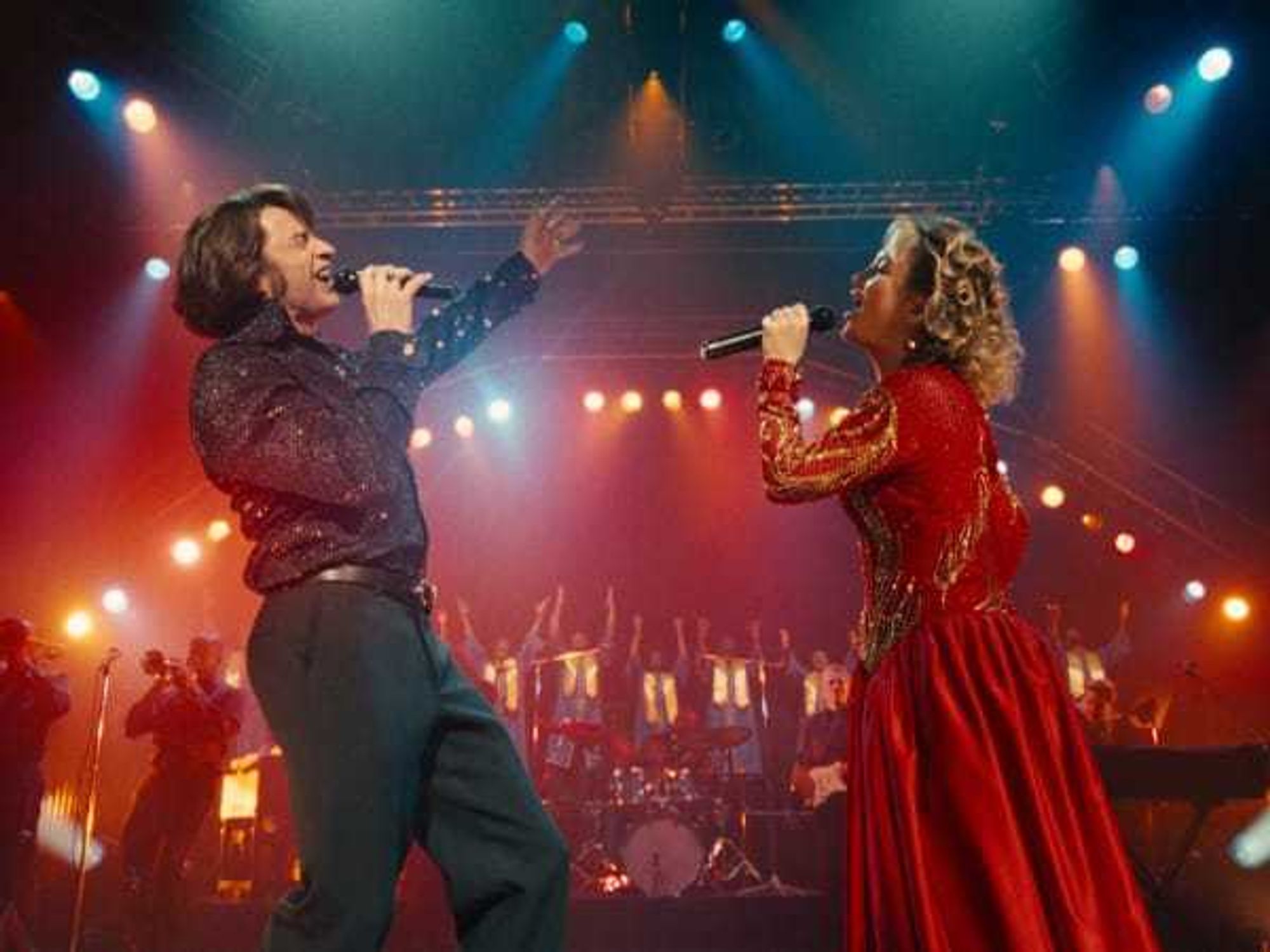Cult of Corridos
Director Shaul Schwarz talks the Juarez drug war in new film, Narco Cultura
There was a steady parade of unique and exciting programming at Fantastic Fest 2013. There were kung fu extravaganzas, the directorial debut of a famous Hollywood actor and an intense, Hitchcockian thriller that takes place during a piano concerto. It’s been a fun ride for the festival’s attendees.
But one section of Fantastic Fest is also willing to dive into the darkest events taking place in our everyday lives, and one documentary has left the festival’s audiences breathless with its presentation of the bloody war next door.
"When we were driving around Juarez, we would suddenly hear a corrido on the police scanner, and the locals said, ‘Within five minutes you’re going to have a dead policeman.’”
Narco Cultura is the first film from photojournalist Shaul Schwarz, who won the award for Best Director of a Documentary Feature at Fantastic Fest. Schwarz has an extensive background working in hotspots across the world, covering such events as riots in Kenya and the ongoing Israeli-Palestinian conflict in his homeland of Israel. It was when he started covering the drug war in Ciudad Juarez, Mexico, that he found the subject for his first feature-length documentary.
Schwarz spent two years covering the violence plaguing Juarez as rival drug cartels battled each other for control of the vital border town through which they funnel drugs into the United States. “And then National Geographic came to me a said that they don’t cover this kind of news thing,” says Schwarz, “but [they asked me],' how do you think this is affecting a grander picture?' At that point, after doing it for two years, I really was starting to talk about the culture, about how we’re seeing things and how it’s affecting immigration.”
An important aspect that Schwarz focused on in narcoculture was the music inspired by it, specifically narcocorridos, or drug ballads. Musicians on both sides of the border sing about the exploits of various cartel leaders or assassins; while Schwarz knew that they were popular in Mexico, he didn’t realize until he met a number of bands within the Los Angeles narcoculture how popular this music was becoming in the U.S. before
“I was looking to tell the cycle of this, the back and forth,” says Schwarz, “and of landing in El Paso and walking across the border and watching how the whole world changed in literally 50 steps.”
Corridos have a long tradition in Mexican music, but it was only when the country took a major turn in the drug war that they began to reflect a glorification of the narco lifestyle. The documentary follows several U.S. musicians, including El Komander and Edgar Quintero of Buknas de Culiacan.
The film follows their performances and the work they put into their music, but it also switches back to the other side of the border. Back in Juarez, Schwarz rides along with Richi, a regional crime scene investigator given the task of cleaning up after the murders and executions tied to the cartels, cataloging evidence,but ultimately rarely ever bringing anyone to court.
“I remember when we were pitching the movie people were saying, ‘These stories never meet.’ And I said, ‘What do you mean? It’s the same story.’ It took a while for people to really see that. When we were driving around Juarez, we would suddenly hear a corrido on the police scanner, and the locals said, ‘Within five minutes you’re going to have a dead policeman.’”
These corridos and their part in narcoculture often draw comparisons to gangster rap, but corridos do have their own distinctions. “I think there are comparisons to gangster rap and rap as a whole. Rap has become super mainstream — I think nobody becomes surprised to see a white kid pumping the music and driving in any neighborhood in America today.”
“But the big difference is that even if you look at the most extreme gangster rap, yeah, it talks about killing and this and that, but it’s not really directly tied to monster-sized, real-deal organized crime,” says Schwarz. Many cartel and gang leaders act as patrons for songwriters, commissioning them to write corridos about their own exploits.
“There’s this clear idealization, choosing sides or interviewing a gangster and writing a song like you see twice in the film. That’s very different [from gangster rap].”
“Americans like to call it the Mexican Drug War. It sounds really far away. But come on, we buy the drugs, we supply the money, we supply the guns. I wanted to show the cycle.”
While the narcoculture in corridos is booming across America, the realities on the ground in cities such as Juarez are sobering, as seen through the daily experiences of the local investigators. “They do their job quite well. Me and you probably wouldn’t do our jobs so well if we knew it just didn’t count. Nobody opens the files. It’s like they’re full-gas in neutral. I think everyone knows it, and nobody says it, but at the same time they have a job.”
Driving up to a murder scene, likely one with multiple victims, becomes a cycle itself. “You get to a crime scene, and there is always a screaming mother. There’s a lot of pain, and they did three of those a day for years. I did it with [Richi] a lot less than he does and I can say it took a toll. I think that anyone who does something in the death industry or something that crazy has this kind of separation thing, but I think they do feel very helpless.”
Schwarz isn’t trying to pose any quick solutions, but he does want audiences to become more aware of the situation. “Americans like to call it the Mexican Drug War. It sounds really far away. But come on, we buy the drugs, we supply the money, we supply the guns. I wanted to show the cycle.”
“I did want people to see how this isn’t just gangs killing gangs. This is something that changes how millions of people on both sides live, and if we just tuck it away, it’s not going to go anywhere.”


